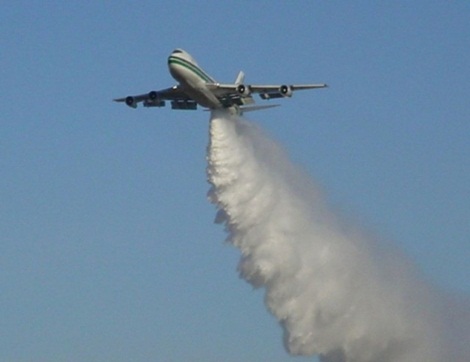
By Victor Thorn
Without realizing it, Diane Macmillan may have stumbled upon one of the biggest conspiracies currently taking place in America: A quiet war being waged over natural resources that could be behind heavy rains and huge snowfalls in some areas and droughts and wildfires in others.
As a licensed realtor in Colorado, Ms. Macmillan started noticing that rain and snowfall east of the Rocky Mountains had been undergoing significant changes. Researching this phenomenon for the past 15 years, Ms. Macmillan discovered a secret that may be adversely affecting the entire nation.
During an October 26 interview, she told this writer: “Water districts and ski areas west of the Continental Divide have engaged in cloud seeding that has produced a snow pack 500% above normal. Not only are ski resorts enjoying boom times, but the water runoff greatly benefits their housing divisions.
“Cloud seeding is actually permitted throughout the state of Colorado,” she said. “In fact, we even have an official Division of Weather Modification that acknowledges cloud seeding.”
As of now, this is being done almost exclusively on the west side of the Rocky Mountains. But there is a downside. East of the Rockies, the rain and snow that usually falls has been sucked away, resulting in severe weather on that side of the mountain range.
Ms. Macmillan continued: “Without getting their natural amount of rain and snow that they’d previously been getting for centuries, severe droughts have resulted, causing a heavy economic toll on farmers. Their crops are dwindling, cattle don’t have enough hay to eat and aquifers and underground wells are depleted.”
But that’s only the beginning. Ms. Macmillan noted another byproduct: “The lack of snow cover in winter creates soil diseases and E. coli in cows because certain bugs don’t die off. Most people aren’t aware of it, but the cantaloupe listeria outbreak that killed 25 people began in Colorado.”
This story, though, has broader ramifications. Ms. Macmillan paints the picture. “Because it’s so dry, eastern Colorado has suffered a rash of wildfires,” she said. “But we’re not the only ones. Every state along the Continental Divide permits cloud seeding. So, if you’ve noticed, there were deadly fires last summer in Colorado, Arizona, New Mexico and Texas, all because of drought conditions.”
Like placing pieces together in a puzzle, Ms. Macmillan added: “Today, silver iodide is used for cloud seeding. Yet before, pilots dropped ashes onto clouds to produce rain. In this context, what do wildfires produce huge amounts of? Ashes.”
Here is where it gets interesting. Ms. Macmillan theorized: “Due to Colorado’s fires, ashes—acting as cloud seeding agents—filtered up into the atmosphere, drifted northeast toward Wisconsin, and then caused tremendous flooding. Plus, did ash produced by half-million-acre wildfires in Arizona, New Mexico and Texas create record-breaking rainfall and flooding in states along the Mississippi River such as Illinois, Missouri, Arkansas and Mississippi? Then, of course, there were hailstorms, 100-day long heatwaves, and a tornado that obliterated Joplin.”
Billions of dollars in destruction came in the aftermath, leaving families homeless, communities wrecked, and insurance companies scrambling to cover their costs. With so many lives ruined, what could possibly be the motive for this possible cloud-seeding plot? An answer might be found in something called the Colorado River Compact where cities built on desert land such as Las Vegas and Los Angeles are starved for water and therefore rely on surpluses from their northern mountain neighbors. Thus, with substantially more rain and snow west of the Continental Divide due to cloud seeding, teeming reservoirs spill into the Colorado River, which then feeds Las Vegas and the L.A. aqueducts.
What we’re talking about are water wars and astronomical amounts of money being paid to Colorado by water-hungry areas in the southwest. Ms. Macmillan weighed in: “Last year, the city and county of Denver spent $200,000 on cloud seeding. But in Colorado, there’s a blackout on this story among those in the press.”
When this reporter inquired as to why insurance companies haven’t investigated this matter, Ms. Macmillan responded, “I don’t think they’ve put the whole picture together yet.”
Victor Thorn is a hard-hitting researcher, journalist and author of over 50 books.

